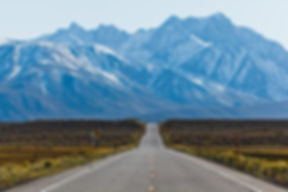Plastic Pollution in Northern Nevada is Unique
"All drains lead to the ocean." In the movie Finding Nemo, that phrase meant the little clownfish could be reunited with his dad. Everywhere else, that phrase means anything you put in your sink or, in fact, anywhere at all will eventually find its way to the ocean.
Except everywhere doesn't include places like Nevada.
First, let's look at "All drains lead to the ocean." From a hydrological standpoint, that means that water ultimately finds its way to the sea. For example, if you were a snowflake in Iowa, you'd melt, drip your way from stream to stream until you found the Mississippi River, and eventually meet the ocean in the Gulf of Mexico. A similar path down rivers and watersheds is made across the country by hail in the Rockies, rain in Maine, and so much more.
What that means for plastics and pollution is that anything -- a bottle blown out of a garbage truck, a bag dropped in a river -- will follow the water down to the coast. There the plastic disintegrates from waves and sunlight into tiny pieces, microplastics, that will stay in our oceans for centuries.

But sometimes, like here in Northern Nevada, all drains go nowhere. We in the Truckee Meadows live in an endorheic basin, the big sciency term for any place on a continent where water can't drain to the sea. The endorheic (pronounced "en-duh-ree-ick") basin most of Nevada is in is called the Great Basin, the very same from which the Great Basin Desert gets its name. Because of the way the Sierra Nevada and other mountains are arranged, water can't flow out, creating salty lakes like Pyramid Lake and Walker Lake or drying completely into salt flats or playas like the Carson Sink.
You may already know this! You may also already know about how plastics find their way to the ocean. But have you considered what it means for plastics to be in a place they physically can't leave?
Yes, microplastics in our oceans is bad. Quite bad. It damages wildlife and comes back to bite us humans, too. But cleaning up the oceans is a challenge, and that's an understatement. So many countries both impact and are impacted by the ocean, and multinational collaboration is much easier said than done. But in Northern Nevada, it's a different story.
Here in the Great Basin, it's down to us and us alone to protect our landscape from plastic pollution. In an age of global environmental issues and efforts, our own endorheic basin turns plastics into a local issue.
And there's no better time than Plastic Free July to start taking actions to keep our very own rivers, mountains, and expanses of sagebrush as plastic free as they can be!
What actions to take, you ask? The 4 R's below are the best place to start!
#1 Refuse
Start by refusing single-use plastics. That could be lids at the coffee shop, bags at the grocery store, or utensils from takeout.

#2 Reduce
Even if you put everything in the trash, your plastic will still find its way to the desert. Limiting the amount of plastics you buy stops the problem at its source!
#3 Reuse/Repurpose
Can't reduce your level of plastics any further? Then start reusing the plastic you already have! That takeout container would make the perfect tupperware and that plastic bottle would be a great pot for a plant.
#4 Recycle
If you can't refuse, reduce, or reuse, your last step is recycle. Recycling isn't perfect, but it's better than nothing. Make sure whatever you recycle is made of a type of plastic that can be recycled in your area.
Not sure how to get started with the 4 R's? No problem! Check out the Plastic Free July website for alternatives to plastic items you use in your daily life and the recycling guide available online from Keep Truckee Meadows Beautiful for things you can and can't recycle here in the Reno area. Small changes add up, especially on a local scale.








